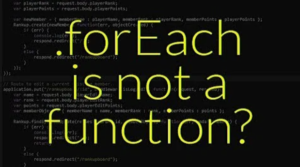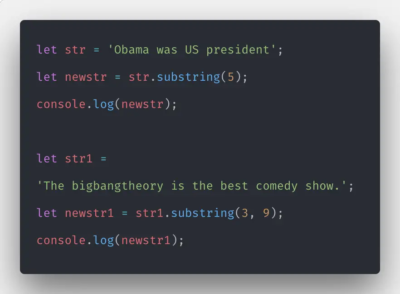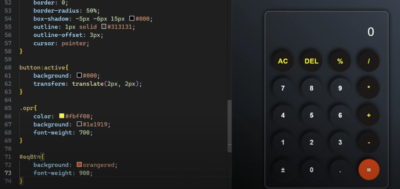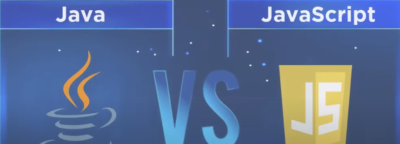
Welcome to this comprehensive tutorial where we will delve into the TypeErrror: toISOString is not a function error in JavaScript. Our exploration will extend beyond just the error itself as we examine various scenarios where this error occurs. Specifically, we’ll focus on situations where the toISOString() method is invoked on a value that is not a Date object. When this mistake happens, a TypeError is generated, indicating that the toISOString function is not available for the given object.
In this tutorial, we aim to provide you with a thorough understanding of this error and equip you with multiple strategies to resolve it. Through practical examples and step-by-step explanations, we will guide you in effectively addressing this issue in your JavaScript codebase. By the end, you’ll have gained valuable insights into handling the TypeErrror: toISOString is not a function error with confidence and proficiency.
TypeError: toISOString Error Insight
Exploring an Example to Illustrate the Issue
// Declare and store the data into a variable
const date= Date.now();
// Prints the UNIX epoch
console.log(date);
// get the Date as ISO Format String
const output = date.toISOString();
Output
1655113057893
TypeError: date.toISOString is not a function
In the given example, let’s begin by assigning a variable to store an integer representing a UNIX epoch timestamp. We obtain this value using the Date.now() method, which returns the timestamp as a number.
However, we encounter a problem when attempting to invoke the Date.prototype.toISOString() method on the numeric value. This results in a TypeError being thrown, accompanied by the error message “toISOString is not a function.”
To ensure the accuracy of the variable’s data type, we can utilize the typeof() operator. This operator enables us to verify the actual data type of the variable and helps us identify potential issues like the one we encountered. By employing typeof(), we can gain confidence in the correctness of the data type before attempting to call any specific methods.
// Declare and store the data into a variable
const currDate = Date.now();
// Prints the UNIX epoch
console.log(currDate);
console.log(“The type of variable is”,typeof currDate)
Output
1655113670272
The type of variable is number
Understanding the TypeErro
Fixing the Issue with Date.prototype.toISOString()
The TypeError: toISOString is not a function error occurs when attempting to use the Date.prototype.toISOString() method on an object that is not of the Date type. This method is specifically designed for Date objects and cannot be applied to other object types.
To resolve this error, there are two approaches you can take in JavaScript. Let’s explore them below, providing a broader understanding of the solutions available.
Solution 1: Converting the Value into a Date Object
To address and overcome the TypeError: toISOString is not a function error, you can employ the technique of converting the value into a Date object before invoking the toISOString() method. This solution involves utilizing the Date() constructor provided by JavaScript, which allows you to create a Date object.
By utilizing the Date() constructor on the value, you ensure its transformation into a valid Date object that possesses the required properties and functions, including the toISOString() method.
To provide a clearer understanding of how this approach can be implemented effectively, let’s explore an illustrative example that showcases the conversion of a value into a Date object using the Date() constructor. This practical demonstration will help solidify your understanding of the solution and enable you to resolve the TypeError: toISOString is not a function error with confidence.
// Declare and store the data into a variable
const currDate = Date.now();
// Prints the UNIX epoch
console.log(“Unix time stamp of current date”, currDate);
// Converts timestamp into Date Object
const dt = new Date(currDate)
// Print the Date as a ISO Format string
console.log(dt.toISOString())
Output
Unix time stamp of current date 1655571942225
2022-06-18T17:05:42.225Z
Handling Invalid Date and RangeError Scenarios
When the Date() constructor is used with an invalid date string or produces a UNIX timestamp outside the range of -8,640,000,000,000,000 to 8,640,000,000,000,000 milliseconds, it results in an “Invalid Date” value. Subsequently, attempting to invoke the toISOString() method on this invalid date will throw a RangeError with the error message “Invalid time value.”
To prevent potential cases in your code, it is crucial to handle such cases properly. When you encounter an “Invalid Date” value or a RangeError, implementing appropriate error handling mechanisms becomes essential. This may involve validating the input date string or checking the range of the constructed date before calling the toISOString() method.
// Declare and store the data into a variable
const currDate = “Hello World”;
// Converts date like object into Date Object
const dt = new Date(currDate)
// Print the Date as ISO Format string
console.log(dt.toISOString())
Output
RangeError: Invalid time value
Solution 2: Type Checking for Error Prevention
To effectively resolve the TypeError: toISOString is not a function error, it is advisable to perform a type check on the variable before invoking the toISOString() method. This approach ensures that the variable is indeed a valid Date object with the toISOString property.
Before calling the toISOString() method, you can employ either the typeof operator or the instanceof operator to check if the variable belongs to the Date type. This type check allows you to verify that the variable possesses the necessary properties and functions, including the toISOString method, thus ensuring a successful invocation.
By implementing this type check, you can prevent the occurrence of the TypeError and safely utilize the toISOString() method exclusively on valid Date objects. This approach significantly enhances the reliability and robustness of your code by ensuring that the method is invoked appropriately.
There are three logical expressions we need to evaluate:
- Check if the variable holds a value of type “object”.
- Verify that the object is not null.
- Confirm that the object possesses the toISOString property.
Example: Type Check Using if/else
// Declare and store the data into a variable
const currDate = “2010/05/18 20:30:45”;
// Converts date like object into Date Object
const dt = new Date(currDate)
if (typeof dt === ‘object’ && dt !== null && ‘toISOString’ in dt) {
console.log(“The data type is”, typeof dt)
// Print the Date as ISO Format String
console.log(dt.toISOString())
}
else {
console.log(“Invalid Date Object”)
}
Output
The data type is object
2010-05-18T15:00:45.000Z
Conclusion
To address the TypeError: toISOString is not a function error, two solutions are available. Firstly, you can convert the value into a Date object using the Date() constructor before invoking the toISOString() method. This ensures that the object possesses the necessary properties and functions for successful application of the method. Alternatively, you can perform a type check using the typeof operator to verify that the object is of the Date type before calling toISOString(). This type check ensures that the required properties and functions are present, thereby avoiding the TypeError. By implementing either solution, you can fix the error and ensure that the toISOString() method is exclusively applied to valid Date objects.







